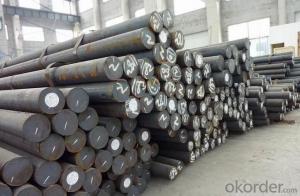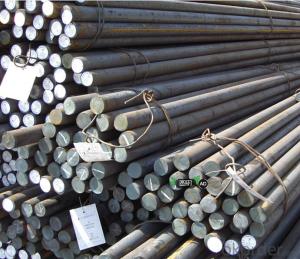11SMnPb30 / 12l14 Free Cutting Steel Bar
- Loading Port:
- Qingdao
- Payment Terms:
- TT OR LC
- Min Order Qty:
- 5 m.t.
- Supply Capability:
- 100000 m.t./month
OKorder Service Pledge
Quality Product, Order Online Tracking, Timely Delivery
OKorder Financial Service
Credit Rating, Credit Services, Credit Purchasing
You Might Also Like
Item specifice
Type:
Carbon Steel,Spring Steel,Bearing Steel,Gear Steel,Deformed Steel,Stainless Steel,Alloy Steel
Shape:
Steel Coil,Steel Sheet,Steel Wire Rod,Steel Flat Bar,Steel Square Bar,Steel Angle,Steel Round Bar,Steel Billets
Technique:
Hot Rolled,Cold Rolled,Cold Drawn,ERW,Forged,Saw,Extruded,EFW,Spring
Surface Treatment:
Galvanized,Coated,Copper Coated,Color Coated,Oiled,Dry,Chromed Passivation,Polished,Bright,Black,PVDF Coated
Certification:
ISO,SGS,BV,IBR,RoHS,CE,API,BSI,UL
Thickness:
5mm~800mm
Width:
5mm~800mm
Length:
6-12m
Outer Diameter:
5mm~800mm
Net Weight:
100kg
Packaging:
seaworthy packaging
11SMnPb30 / 12l14 Free Cutting Steel Bar
Detailed Information of 11SMnPb30 / 12l14 Free Cutting Steel Bar
| Name | Steel Round Bar |
| Shape | Round Bar/Square Bar/Flat Bar/Plate/Wire |
| Standard | GB/ASTM/SAE/AISI/DIN/JIS/EN/BS |
| Surface Treatment: | Black/Peeling/Polished/Machined |
| Delivery Condition: | Hot Rolled or Forged/Peeled or Black Surface |
| Test | SGS/UT 100% Elements Testing |
| Certificate: | ISO/Mill Certificate |
| Service: | 24 hours online service / |
| more than 20 years trading and manufacture | |
| Quality Assurance: | the third party inspection, such as SGS, BV, TUV…etc. is acceptable |
| Packaging Details: | Seaworthy Packaging or as per customer's packing instruction |
Product Overviews of 11SMnPb30 / 12l14 Free Cutting Steel Bar
| Product Name | Typical Grades | Diameter(mm) | Standard Adopted |
| Carbon Steel | 20 (1020/S20C/C22) | ||
| 40 (1040/S40C/C40) | Ø16-Ø300 | ||
| 45 (1045/S45C/C45) | |||
| Bearing Steel | GCr9 (51100/SUJ1) | ||
| GCr15 (52100/SUJ2/100Gr6) | Ø12-Ø250 | ||
| GCr9SiMn (A485-Gr.1/SUJ3) | GB/SAE/ | ||
| Cr-Mo Steel | 20Cr (5120/SCr420H/20Cr4) | JIS/DIN | |
| 40Cr (5140/SCr440/41Cr4) | Ø12-Ø250 | ||
| 42CrMo(4140/SCM440/42CrMo4) | |||
| Gear Steel | 20CrNiMo | ||
| 20CrMn(5115/SMnC420/20MnCr5) | Ø16-Ø600 | ||
| 20CrNiMo(8620/SNCM220/20CrMiMo2) |
Company Introduction of 11SMnPb30 / 12l14 Free Cutting Steel Bar
CNBM International Corporation is the most import and export platform of CNBM group(China National Building Material Group Corporation) ,which is a state-owned enterprise, ranked in 270th of Fortune Global 500 in 2015.
With its advantages, CNBM International are mainly concentrate on Cement, Glass, Iron and Steel, Ceramics industries and devotes herself for supplying high quality series of refractories as well as technical consultancies and logistics solution.
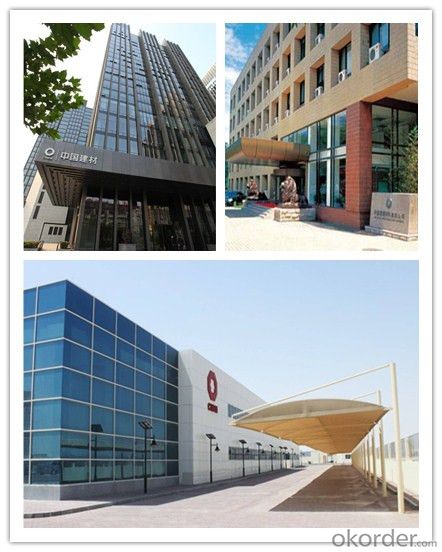
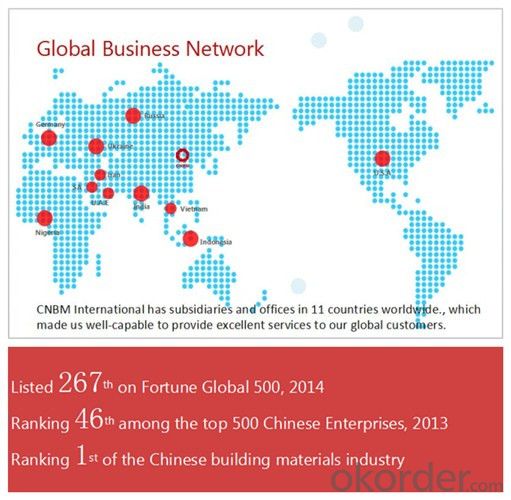
| After-sale service | l CNBM provides the services and support you need for every step of our cooperation. We’re the business partners you can trust; you can relax and get on with doing business. |
| l For any problem, please kindly contact us at any your convenient time, we’ll reply you in our first priority within 24 hours | |
| Advantages | l Industry experience over 20 years. |
| l Shipment of goods -More than 70 countries worldwide. | |
| l The most convenient transport and prompt delivery. | |
| l Competitive price with best service. | |
| l High technical production line with top quality products. | |
| l High reputation based on best quality products. | |
Packaging & Delivery of 11SMnPb30 / 12l14 Free Cutting Steel Bar
| Packaging Detail | Sea worthy packing /as per customer's packing instruction |
| Delivery Detail | 15 ~ 40 days after receiving the deposit |
Products Show
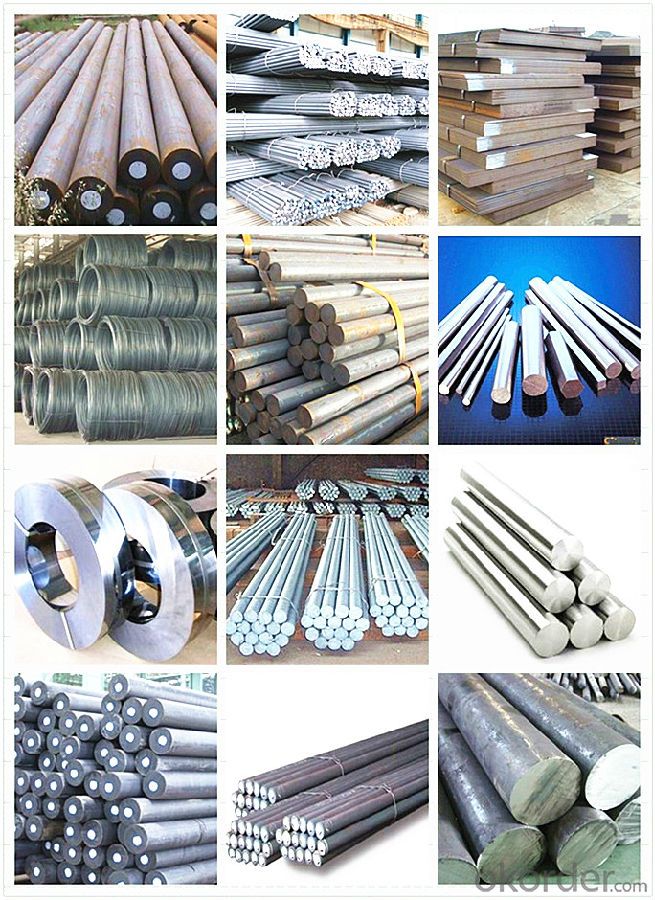
FAQ:
| Are you a trading company or manufacturer? | Manufacturer |
| What’s the MOQ? | 1000m2 |
| What’s your delivery time? | 15-20 days after downpayment received |
| Do you Accept OEM service? | Yes |
| what’s your delivery terms? | FOB/CFR/CIF |
| What's the Payment Terms? | 30% as deposit,70% before shipment by T/T |
| Western Union acceptable for small amount. | |
| L/C acceptable for large amount. | |
| Scrow ,Paybal,Alipay are also ok | |
| Why choose us? | Chose happens because of quality, then price, We can give you both. Additionally, we can also offer professional products inquiry, products knowledge train (for agents), smooth goods delivery, excellent customer solution proposals. |
| What's your available port of Shipment? | Main Port, China |
| What’s your featured services? | Our service formula: good quality+ good price+ good service=customer's trust |
| Where are your Market? | Covering more than 160 countries in the world |
- Q:Is special steel suitable for structural applications?
- Yes, special steel is well-suited for structural applications. This type of steel is engineered to possess specific properties and characteristics that meet the demands of various applications. Industries such as construction, automotive, aerospace, and oil and gas often rely on special steel. The outstanding strength, durability, and resistance to corrosion of special steel make it an ideal material for structural applications. It can withstand heavy loads, high temperatures, and extreme weather conditions, ensuring the safety and longevity of structures. Furthermore, special steel offers excellent weldability, machinability, and formability, allowing for flexibility in design and construction. It can be easily shaped, fabricated, and assembled into various structural components, making it suitable for complex and unique projects. Moreover, special steel comes in a wide range of grades and types, each tailored to meet specific structural requirements. These include carbon steel, alloy steel, stainless steel, and tool steel, among others. This versatility enables engineers and designers to select the most suitable type of special steel for their specific application, ensuring optimal performance and cost-effectiveness. In conclusion, special steel is highly suitable for structural applications due to its exceptional strength, durability, resistance to corrosion, and design flexibility. The wide range of grades and types available allows engineers and designers to choose the most appropriate material for their specific project requirements.
- Q:What are the magnetic properties of special steel?
- Special steel typically exhibits magnetic properties due to its composition and structure. These magnetic properties can range from weak to strong, depending on the specific type of special steel. Some special steels, such as stainless steel, are generally non-magnetic or weakly magnetic, while others, like certain tool steels, can be highly magnetic. The magnetic properties of special steel are influenced by factors such as the amount and type of alloying elements present, heat treatment processes, and the crystal structure of the material.
- Q:What are the different methods of preventing stress corrosion cracking in special steel?
- There are several methods to prevent stress corrosion cracking in special steel. One common approach is to select a steel alloy with enhanced resistance to stress corrosion cracking. This can be achieved by adding alloying elements such as nickel, chromium, or molybdenum, which help improve the steel's corrosion resistance. Another method is to control the environment in which the steel is exposed. This can involve minimizing exposure to corrosive substances or adjusting temperature and humidity levels. Additionally, surface treatments such as passivation or coating can be applied to create a protective barrier against corrosion. Regular inspection and maintenance of the steel structure are also important to identify and address any potential sources of stress corrosion cracking.
- Q:How does special steel contribute to the transportation equipment industry?
- Special steel plays a crucial role in the transportation equipment industry by providing high strength, durability, and resistance to wear and corrosion. It allows for the construction of lighter yet stronger components, leading to improved fuel efficiency, increased payload capacity, and enhanced safety in vehicles. Additionally, special steel enables the production of precision parts and components, ensuring the reliability and performance of transportation equipment.
- Q:How is special steel tested for quality and durability?
- Special steel is tested for quality and durability through a series of rigorous tests and inspections. These tests typically include measuring mechanical properties such as tensile strength, hardness, and impact resistance. Additionally, non-destructive testing methods like ultrasonic and magnetic particle inspections are used to detect any internal defects or inconsistencies. Quality and durability are ensured by adhering to strict industry standards and specifications, and only steel that meets the required criteria is deemed suitable for use.
- Q:How does special steel perform in high-temperature mechanical fatigue conditions?
- Special steel performs well in high-temperature mechanical fatigue conditions due to its unique composition and properties. It exhibits excellent strength, toughness, and heat resistance, enabling it to withstand cyclic loading and high temperatures without experiencing significant degradation or failure. The special steel's exceptional performance in such conditions makes it an ideal choice for applications that involve continuous exposure to elevated temperatures and mechanical stresses, ensuring long-term reliability and durability.
- Q:Is special steel magnetic?
- Yes, special steel can be magnetic depending on its composition and treatment. Certain types of special steel, such as ferritic and martensitic stainless steels, are magnetic, while others like austenitic stainless steels are generally non-magnetic.
- Q:What are the specific requirements for special steel used in the chemical reactor industry?
- The specific requirements for special steel used in the chemical reactor industry can vary depending on the specific application and the type of chemicals being processed. However, there are some general requirements that are typically expected for this type of steel. Firstly, the steel used in chemical reactors must have excellent corrosion resistance. Chemical reactors often handle highly corrosive substances, such as acids, alkalis, and other reactive chemicals. Therefore, the steel must be resistant to the corrosive effects of these substances to ensure the integrity and durability of the reactor. Secondly, the steel should have high temperature resistance. Chemical reactions often require high temperatures to facilitate the desired chemical transformations. The steel used in these reactors must be able to withstand these elevated temperatures without losing its structural integrity or undergoing any significant deformation. Furthermore, the steel should have good mechanical properties, including high strength and toughness. The reactor may experience high pressure and mechanical stress during operation, so the steel must be able to withstand these conditions without failure. Additionally, the steel used in chemical reactors should have good weldability and formability. This allows for ease of fabrication and construction of the reactor, ensuring a reliable and efficient manufacturing process. Moreover, the steel should have low levels of impurities, such as sulfur and phosphorus. These impurities can adversely affect the performance of the steel in terms of corrosion resistance and mechanical properties. Therefore, the steel must meet strict quality standards to ensure it is suitable for use in the chemical reactor industry. In summary, the specific requirements for special steel used in the chemical reactor industry include excellent corrosion resistance, high temperature resistance, good mechanical properties, weldability, formability, and low levels of impurities. Meeting these requirements is crucial to ensure the safety, reliability, and efficiency of chemical reactors in various industrial processes.
- Q:What are the different testing methods used for special steel?
- Some of the common testing methods used for special steel include hardness testing, tensile testing, impact testing, metallographic examination, chemical analysis, and non-destructive testing. These methods help assess the mechanical properties, microstructure, chemical composition, and overall integrity of special steel, ensuring its suitability for various applications.
- Q:What are the specific requirements for special steel used in the defense armor industry?
- The specific requirements for special steel used in the defense armor industry include high strength and hardness, excellent toughness, resistance to ballistic impact and penetration, durability, corrosion resistance, and the ability to be fabricated into complex shapes. Additionally, the steel must meet strict quality control standards and be able to withstand extreme conditions such as high temperatures and harsh environments.
1. Manufacturer Overview |
|
|---|---|
| Location | |
| Year Established | |
| Annual Output Value | |
| Main Markets | |
| Company Certifications | |
2. Manufacturer Certificates |
|
|---|---|
| a) Certification Name | |
| Range | |
| Reference | |
| Validity Period | |
3. Manufacturer Capability |
|
|---|---|
| a)Trade Capacity | |
| Nearest Port | |
| Export Percentage | |
| No.of Employees in Trade Department | |
| Language Spoken: | |
| b)Factory Information | |
| Factory Size: | |
| No. of Production Lines | |
| Contract Manufacturing | |
| Product Price Range | |
Send your message to us
11SMnPb30 / 12l14 Free Cutting Steel Bar
- Loading Port:
- Qingdao
- Payment Terms:
- TT OR LC
- Min Order Qty:
- 5 m.t.
- Supply Capability:
- 100000 m.t./month
OKorder Service Pledge
Quality Product, Order Online Tracking, Timely Delivery
OKorder Financial Service
Credit Rating, Credit Services, Credit Purchasing
Similar products
New products
Hot products
Related keywords
